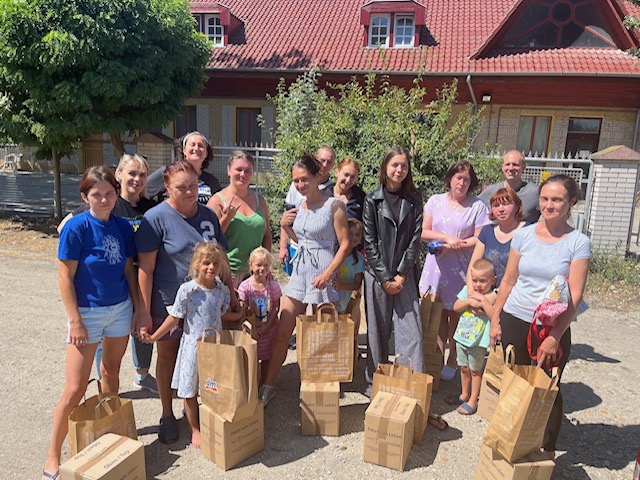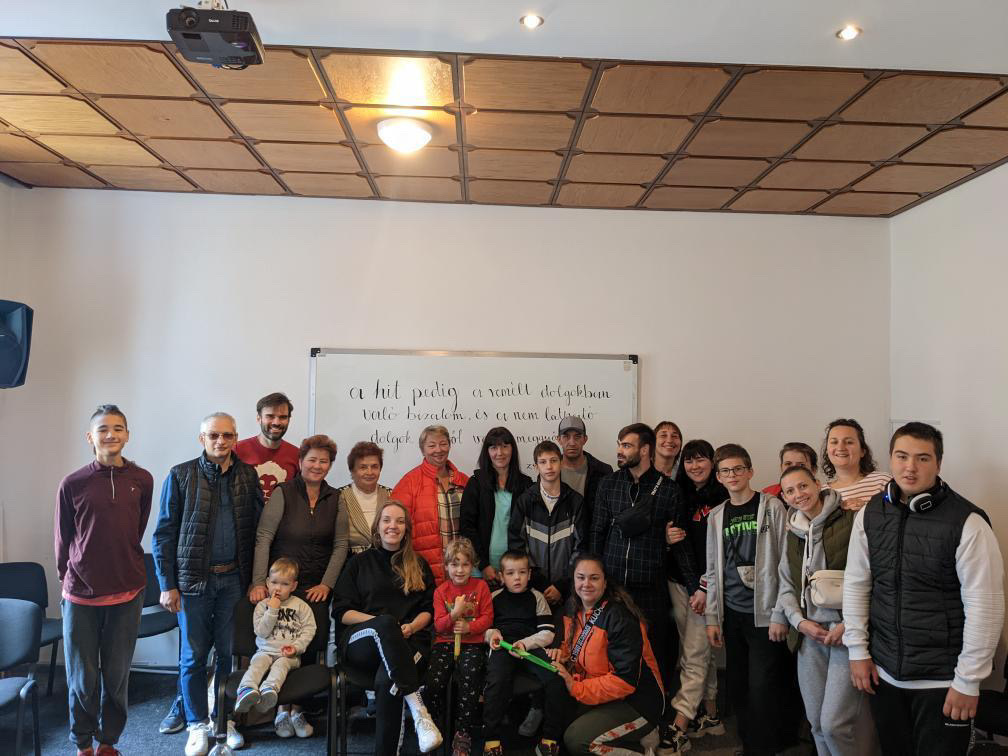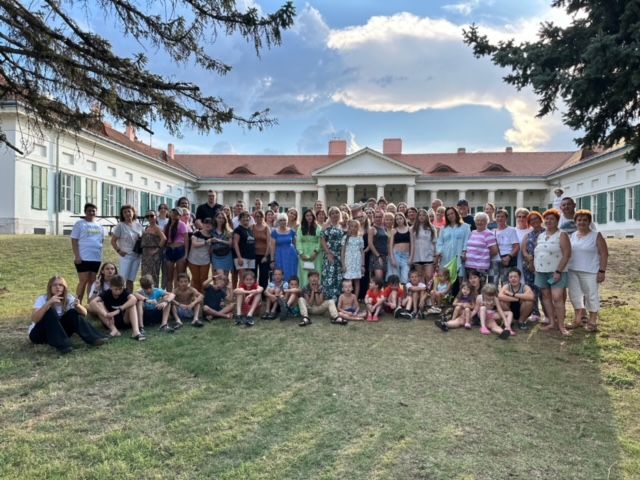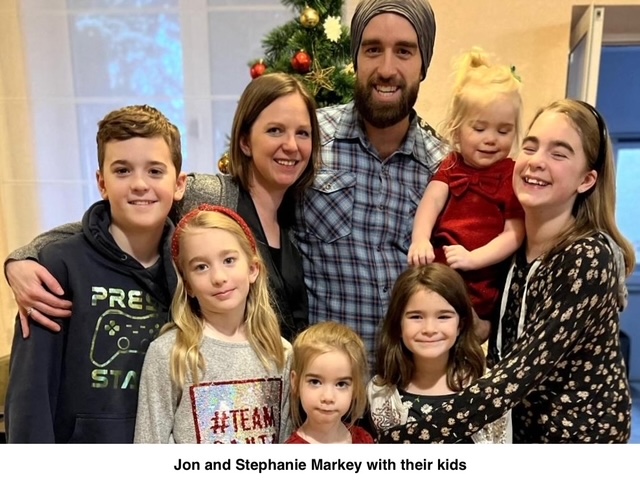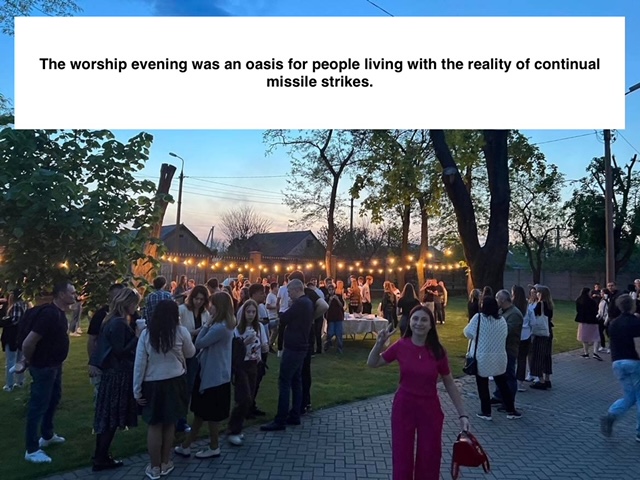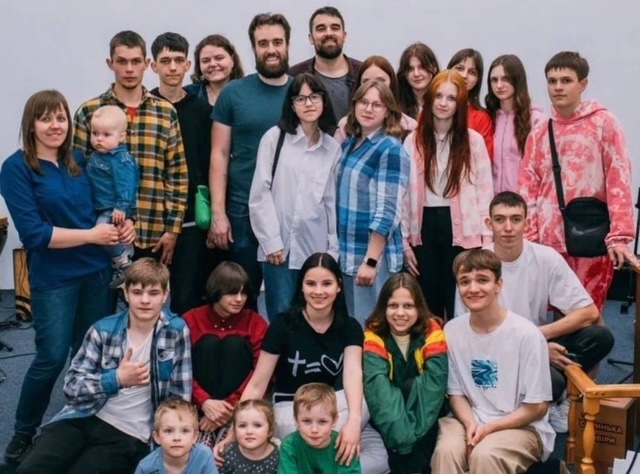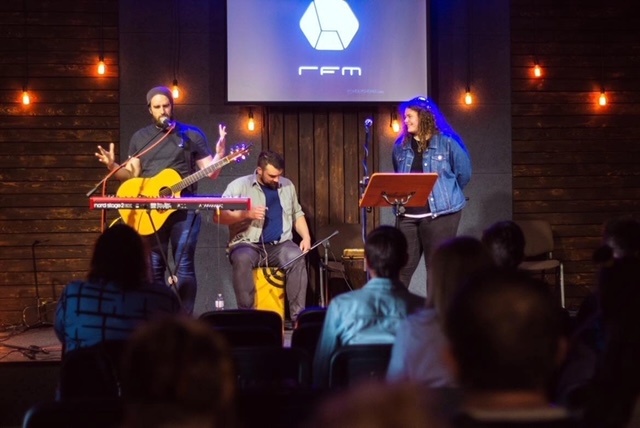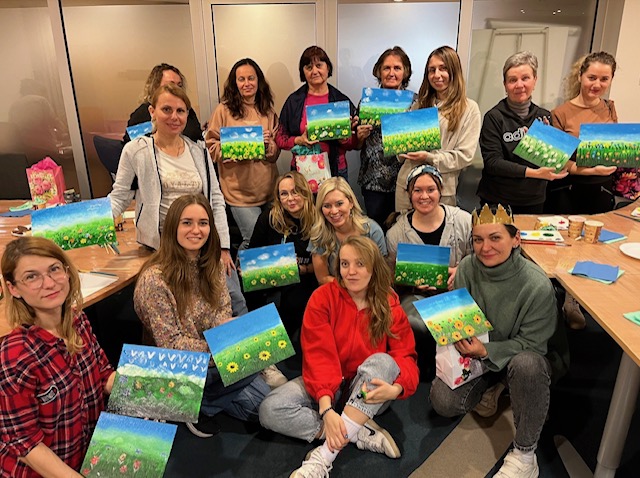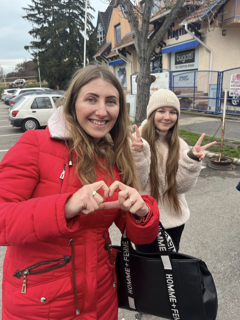By Sharon T. Markey
September 27, 2024
“Who believes in God?” he interrupted me, standing up in the middle of class and looking around the room at the group of 3-to-12-year-old kids. His name was Bohdan. He was young, but he exuded confidence and defiance, an 8-year-old going on 18. The rest of the kids hesitantly raised their hands or murmured that they believed in God.
“Well, I don’t!” He was cocky and locked eyes with me.
“OK,” I said, shrugging and smiling gently. Inwardly, I was panicking, wondering how I was going to manage this boy for the next three days. We still had six more sessions to get through together! I began to pray that God would touch Bohdan’s heart.
Read full article with photo gallery.
By Sharon T. Markey
August 2, 2024

“I’ll never have anything to do with any sort of Bible study!” She spoke defiantly, her chin jutting out, her eyes fierce. Seventy-two years old, Tetiana hadn’t gone soft with age. She was confident, outspoken, and clearly used to taking the lead. A product of Russian communism, she was also a staunch atheist. A refugee from the Ukrainian city of Kharkiv, Tetiana arrived in Hungary on March 4, 2022, day nine of the war. Her city was so close to the Russian border that residents had little to no warning of incoming bombs.
Tetiana and five other women had been attending emotional health support groups led by Olya Syniuk and Tanya Blynova, two displaced Ukrainian women who were part of a team of missionaries reaching out to Ukrainian refugees all over the country of Hungary. By that point, Bridge UA, a Calvary Chapel ministry to war-affected Ukrainians, had been visiting refugees in Tetiana’s city for over a year. The refugees trusted the Bridge UA missionaries, because they themselves had all been displaced by the war in Ukraine. They were also the only people who came to visit the refugees and minister to their most pressing needs.
As the six-week course on emotional health was wrapping up, Olya invited the ladies to continue to meet for a Bible discussion group. All the ladies expressed pleasure at the idea, except for Tetiana. “That’s fine,” Olya assured her. “You don’t have to come.”
By Sharon T. Markey
June 6, 2023
Located in Western Ukraine, the city of Ternopil has been mostly untouched by the Russian invasion. In the midst of the chaos of war, Ternopil has been a safe haven. It is here that the music ministry of Room For More has been able to flourish under the leadership of Calvary Chapel missionary Jon Markey. Jon and his family make their home in Ternopil, where Jon writes and produces powerful worship songs in the Ukrainian language that speak to the current situation. By releasing them on YouTube and every major streaming platform, he makes these songs of hope and comfort immediately available to people all over Ukraine.
Last month Room For More toured central and eastern Ukraine, encouraging believers through worship nights in six different cities. The situation in Ukraine is far from stable, with frequent air raid warnings in much of the country. For many, shelling, missiles, and drone attacks have become a normal part of life. People in some areas live with the constant threat of bombardment without warning. They are so close to the front lines that there is no time to activate the air raid warning systems before it’s too late. But despite the challenges of life under these conditions, people are not giving into fear or despondency. Many are tired, burdened by the extraordinary stresses of their life. Some are overwhelmed. But over and over again in each city, the Room For More team met inspiring people who refused to abandon hope and joy in the face of oppression and uncertainty.
One of the first cities they visited was Zaporizhzhia. Located a mere 20-minute drive from the frontlines, this is one of those cities where people have no warning about incoming missiles. One would expect such a place to be dismal, depressing, and destroyed by the war, but Jon said that they were amazed to discover that Zaporizhzhia had “so much life, so much joy”!
The worship night was characterized by a “refreshing simplicity,” as everyone recognized their need to gather “to exhale, to sing, to encourage each other.” Over and over again, people expressed how much it meant to them that Room For More had come. Many musicians have left Ukraine, and of those who remain, none of them travel to Zaporizhzhia anymore. The Room For More team realized that their mission to use music to spread the hope, peace, and joy of the gospel is desperately needed.
The visit to the city of Nizhyn in northern Ukraine was possibly the highlight of the whole tour. The Calvary Chapel pastor there has a harrowing evacuation story that is, sadly, not uncommon. He and his wife had to flee through a minefield with their children while Russian fighter jets swooped above them. They returned home last autumn and have been very active in reaching out to their city and serving displaced people. When Room For More visited, they arranged two worship nights in different churches on the same day. Despite the hardships they are facing, people worshiped God with enthusiasm. A van full of kids even came from a church within artillery range of the Russian border. Shelling is a part of their daily life. It’s painful to imagine what it must be like to live under those conditions. They were so excited to meet Room For More and pose for a group photo with them, and they shared that Jon’s songs have been a profound source of comfort and encouragement in the midst of everything they have suffered.
The worship night in Kyiv was hugely significant for the Room For More team. Some of them grew up in this city and still have close ties to people there. But as the evening approached, it wasn’t clear if anyone would show up. Kyiv had been targeted by nighttime missile and drone attacks almost every day for the past week. Between the danger of being out at night when there was a greater risk of air raids and the fact that no one had gotten a full night’s sleep for days, it would have been understandable if everyone stayed home.
But they didn’t.
They were exhausted, but they came. As they sang, their tension melted away, and these courageous people found joy. They rejoiced in the face of the darkness, defying the forces of evil to quench their praise.
While Jon and Aaron had been away from their families on tour, their city had been hit by rockets for the first time since the start of the war. As a result, many who came to the Kyiv worship night asked how their families were. Jon was moved to tears by their concern. “These people live with explosions as the background music of their lives,” he said, “and they were worried about us.”
Everywhere that Room For More went, people were so grateful that they had come. Things like these worship nights are vital right now. The Body of Christ in Ukraine desperately needs encouragement and rest, and they find both as they worship together at the feet of Jesus.
One of Jon’s songs that Room For More has been sharing widely is a passionate prayer for Ukraine. Click the link below to listen. The English translation is below also. While you listen, pray for Ukraine and her people!
Prayer For Ukraine
Verse 1:
Yahweh, Savior,
Maker of all we see,
Listen to our prayer,
Raise us from our knees.
Chorus:
Lord, You alone
Are the Almighty Good One.
Lord, come and save us, heal us,
Deliver us from pain.
Lord, give us freedom,
Wholeness,
A future.
God, You are mighty.
God, come defend us.
You are the only
One who can heal us.
Verse 2:
Just One, Strong Tower,
There is none like You.
Come down, show Your power,
The oppressed cry out to You.
Chorus
Bridge:
May Your glory shine upon us,
May our God never forget us,
May Your hand be always on us,
And Your grace be ever with us.
Give a future to our children,
Fear and evil, all forgotten.
Let them know the joy of Your life,
Let them always walk in Your light.
Chorus variation:
Lord, You have spoken
Your care for the poor one.
Lord, You are near to the broken,
The orphan is Your son.
Bring back the smiles
To all of our faces.
God, You are mighty.
God, come defend us.
You are the only
One who can heal us.
By Olya Syniuk
One of the biggest challenges people face in a new country is integrating into a new social circle. With all the differences in language, culture, accepted daily routines, and other details, it is not easy to feel "at home" in a foreign country. Adapting takes a long time.
The situation is even more complicated if you are a refugee. On the one hand, the move was not something you planned and prepared for: you did not have enough time to say goodbye to your old life, so you are often not ready to accept your new one. On the other hand, you almost never feel equal to the locals: they may pity you or want to help, but often they are not ready to make you a part of their lives.
That is why we, the BridgeUA team in Hungary, see such great value in creating Ukrainian-Hungarian communities. And we can already share our first success story. Recently, a team of people from Calvary Chapel in Philadelphia, USA traveled to Hungary to help us serve Ukrainians here. With their help, we organized a holiday celebration to bring together Ukrainian and Hungarian women in the city of Veszprém.
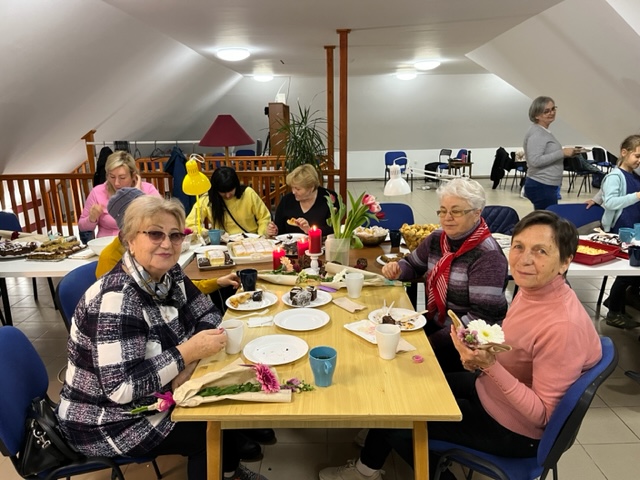
Despite the language barrier, the women were able to make earrings together, have lunch together, and even have a lesson in traditional Hungarian dances!
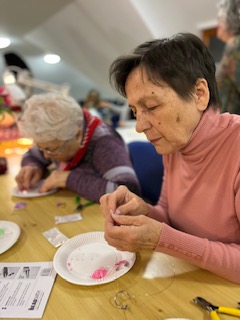
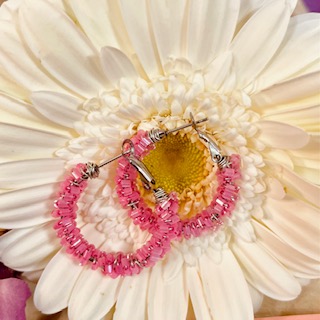
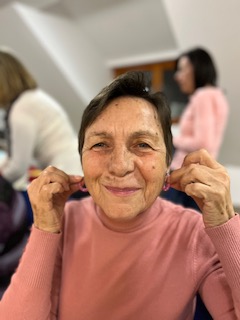
The church in Veszprém did a short Bible study. The story of Hagar, who was forced to flee into the desert while pregnant and met God there, touched the hearts of the Ukrainian women, who are also going through trying circumstances. At the same time, it was obvious how good this time was for the Hungarian women, because they too received spiritual encouragement, care, and an opportunity to practice the love of Christ.
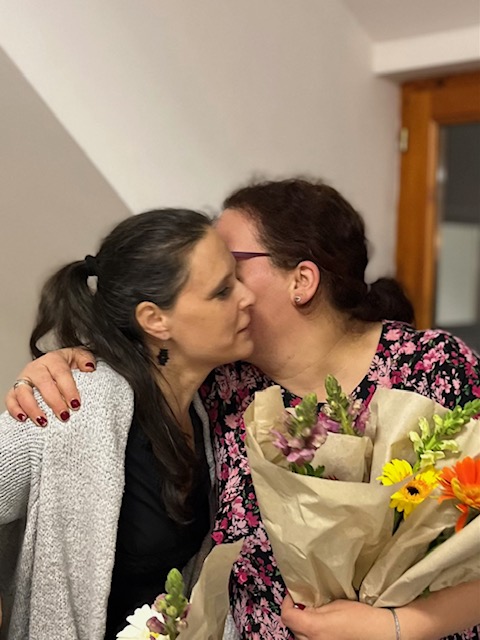
We all need healing.
We all need community.
And each of us has something to share with others.
By Olya Syniuk and Sharon T. Markey
April 4, 2023
You never get used to war. Over a year has passed since the beginning Russia’s full-scale invasion of Ukraine. The news cycle may have moved on, but the war continues, and Ukrainians all over the world continue to face grave difficulties. BridgeUA Europe has been working with refugees in Hungary and Poland. The majority of these Ukrainian families are from the eastern and southern regions of Ukraine. Even if the war were to end tomorrow, they would have nowhere to go, because their cities are ruined.
These women and children face enormous challenges. For the most part, their husbands and fathers are still in Ukraine, if they haven’t been killed defending their country. They are on their own, and they have to fill out official paperwork in an unfamiliar language, find lodging, find a job and learn new job skills to support themselves (many had to get factory jobs), enroll their children in schools where they don’t speak the language, figure out how to navigate an unfamiliar medical system, and the list goes on. Even simple tasks become overwhelming when you don’t understand the system and can’t speak the language.
On top of these challenges, these families are struggling with loneliness and wrestling with deep spiritual questions. They are searching for answers and for community. Nadia, a refugee whom we met while doing aid deliveries around Hungary, has a typical story. Her husband is still in Ukraine, and Nadia is taking care of her 10-year-old sister and her own child.
Nadia told us, “You don’t have to bring us anything—just come and spend time with us. Our greatest need is spiritual.”
Over the last year, we have developed relationships with hundreds of Ukrainian refugees all over Hungary. We started by simply meeting their physical needs—groceries, toiletries, clothing. Then in the fall, we also took them school supplies. At Christmastime, we gave gifts to the kids. As a result of consistently showing these families the love of Christ in practical ways, we now have Ukrainian communities in five cities across Hungary.
